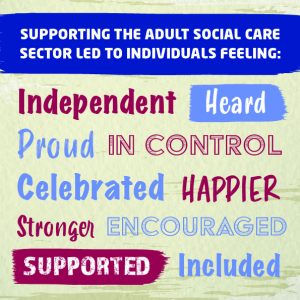Supporting the Adult Social Care Sector
“It has helped me settle into the village, to get to know a place better and take in the world where you are. To relax if I’m feeling down.” Participant, Brookfield Wellbeing Project
The Cultural Communities Network programme (CCN) complimented elements of the work of adult social care across the county. Adult Social Care supports people who are older or living with a disability or physical or mental health illness to live independently and stay well and safe. Together we explored the barriers and challenges some people faced especially those who were most isolated, or vulnerable, understanding how they could benefit from bespoke support in accessing unique cultural and creative opportunities within their own community.
We hope our tips shared below will enable you to embrace opportunities to support the aims of adult social care within your communities.
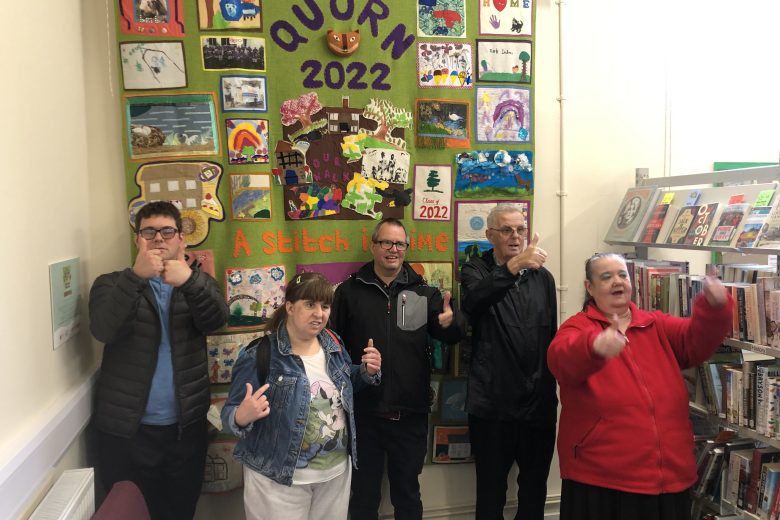
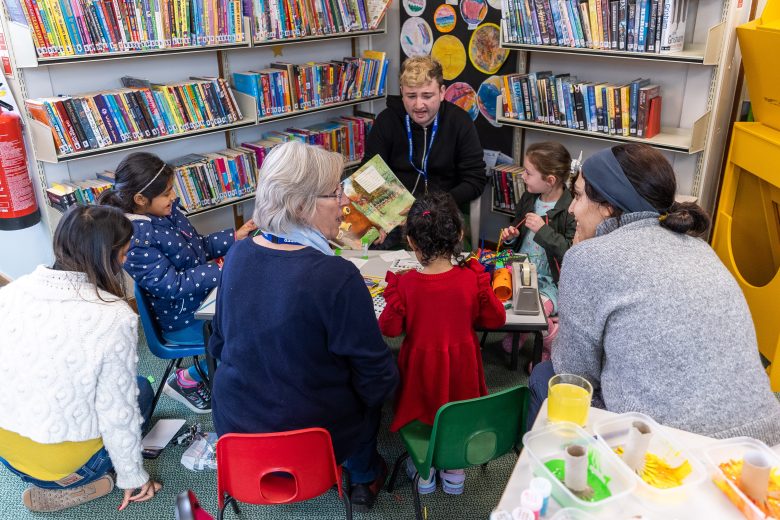
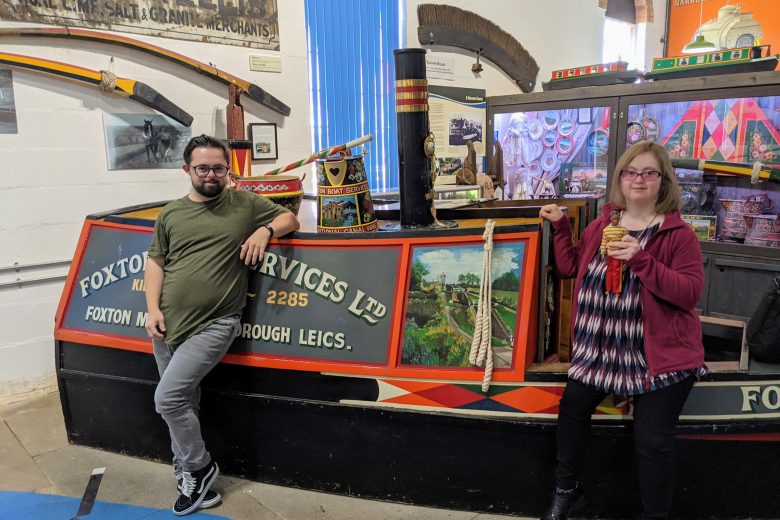
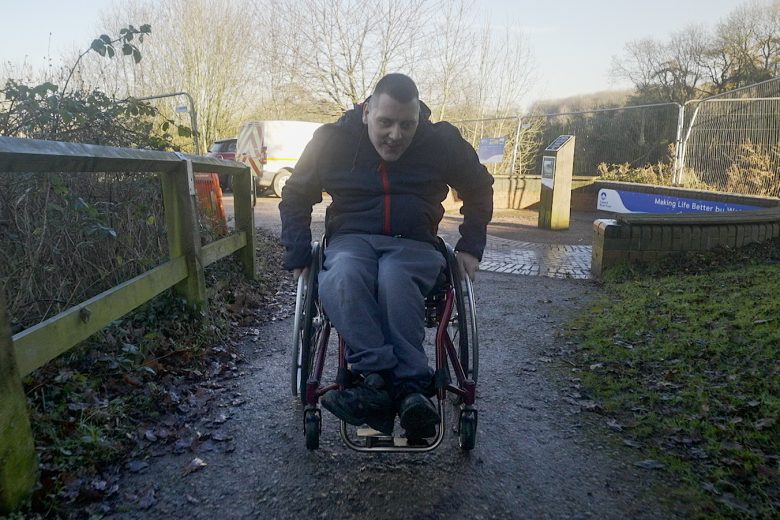
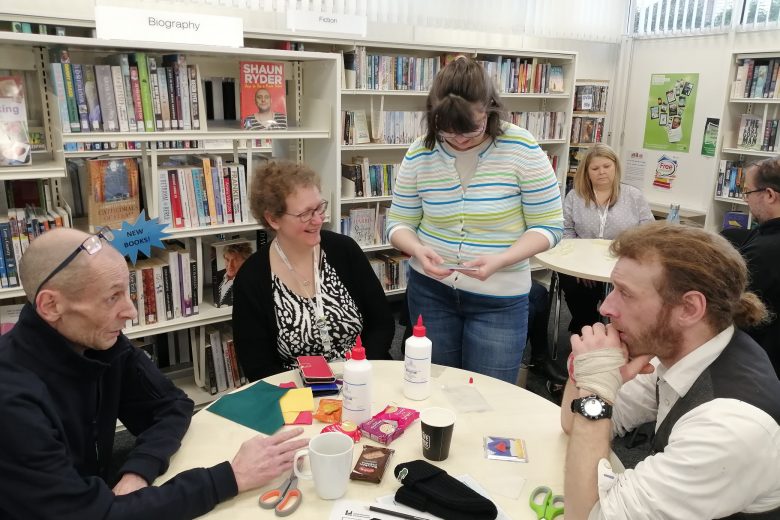
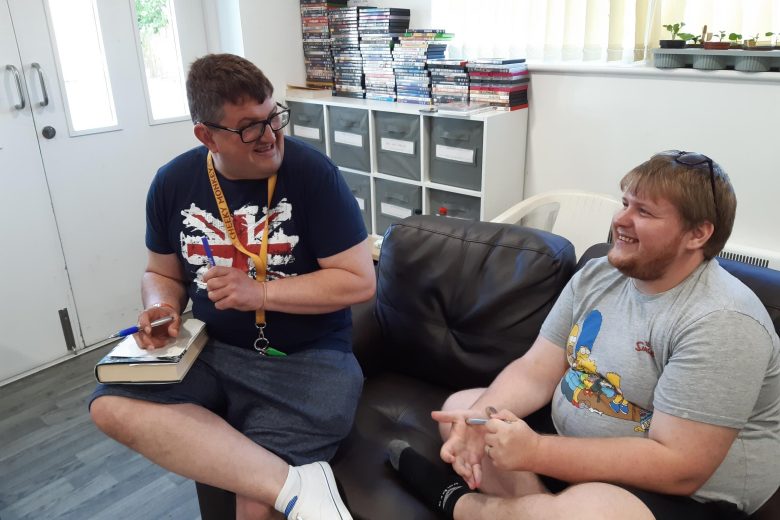
- How our cultural venues supported the Adult Social Care Sector
- Provided a space that was local, accessible, safe, welcoming and inclusive

- Activities offered a sense of belonging and connection
- Opportunities were developed and created that supported wellbeing, increased confidence and raised aspirations
- Activity and opportunities supported participants to develop independence
- Opportunities were community-led, non-prescriptive and therefore more diverse
- Creation of bespoke volunteering opportunities for community members
- Access and progression to creative and formal learning
- Provided a space that was local, accessible, safe, welcoming and inclusive
- How we reached individuals supported by Adult Social Care
- We reached out to adult social care partners and voluntary sector groups to connect with individuals, especially those that were isolated or lonely or with caring responsibilities
- Adult social care partners supported us to gain an understanding of individual needs and circumstances and the level of support people would need
- We created and developed projects and activities alongside social care partners that were tailored to the individuals and their communities
- We created opportunities and activities in partnership with the participants to be sure that they would be appealing, suitable and non prescriptive
- Challenges we want to share
- Some volunteers didn’t feel equipped with the tools to run groups where individuals may have needed additional support
- Some participants needed 1 to 1 support due to a disability to engage with some activities – e.g. visual impairment
- Participants could be uneasy about joining large group activities
- Ways we overcame them
- Ensured a robust partnership with skilled professionals
- Recruited new volunteers with appropriate skills to lead and support specific groups
- Upskilled volunteers through various training solutions; Peer to peer training, professional colleagues running awareness sessions, formal courses, informal workshops
- Limited numbers of participants by running more than one session
- Buddying up – participants supporting each other
- Budgeting or fundraise for resources to break down barriers, e.g. sign language training, large print materials, transport costs
- What supporting the Adult Social Care Sector could mean for your community
- Greater community cohesion, new networks, connections, partnerships and friendships
- Thriving and integrated communities where people help and support each other
- Better use of community resources, sharing assets and capacity
- Care and support closer to home
- Better quality of life for local people including improved confidence and independence
- Improved health and wellbeing
- Less reliance on more formal and costly statutory support services
- Be inspired by our case studies
- Braunstone Town Community Library – creative & cultural activity such as visual art, yoga, creative writing and connecting with nature
- Brookfield Independent Living – Great Glen – a wellbeing project for adults with disabilities and/or autism aimed at increasing a sense of belonging and connection
- Desford Community Library Family History Group for individuals with caring responsibilities
- Sileby Good Companions Group – for those lonely or socially isolated members of the community

